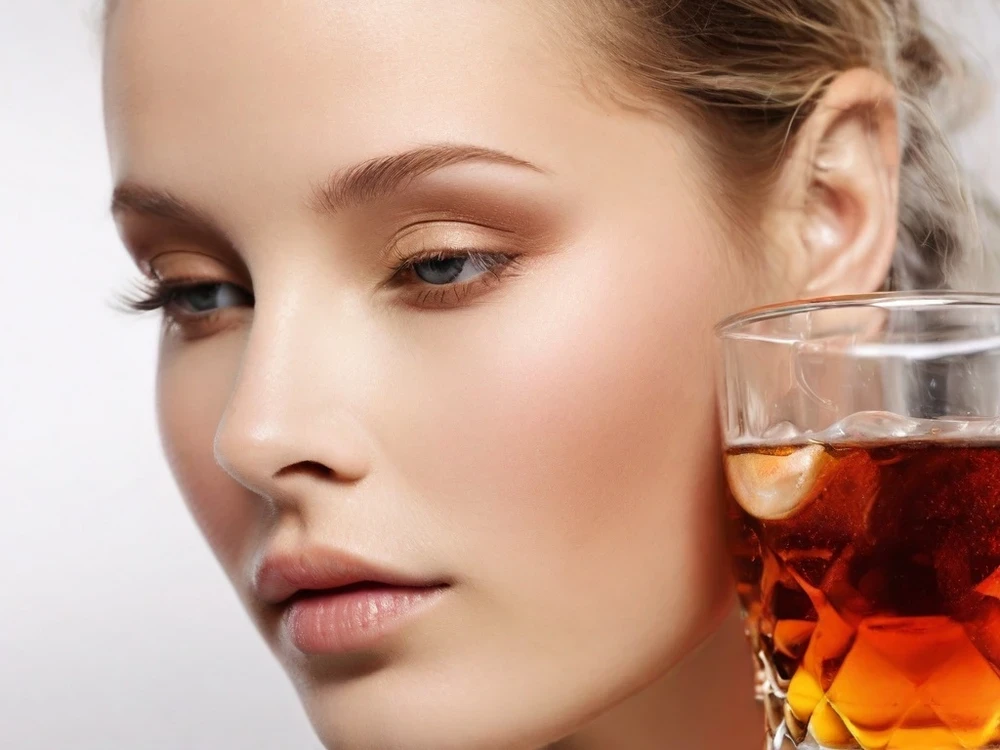Experts advise that before you buy the best moisturizing serum to help your skin stay plump and smooth, you should review your drinking habits.

Everyone knows that alcohol has many negative effects on the body, but this is still not enough to convince them not to drink too much.
But if you are a meticulous person in skin care, especially fond of using creams, then you should learn about the negative effects of alcohol on the skin.
Experts advise that before you buy the best moisturizing serum to help your skin stay plump and smooth, you should review your drinking habits.
Chances are you're doing your skin care routine like running the air conditioner with all the windows open.
As a diuretic, alcohol makes you urinate more frequently, causing dehydration in your body. And if your body is dehydrated, your skin is dehydrated too.
“When you’re systematically dehydrated, one of the first places you see it is on your skin,” says Teo Soleymani, MD, a board-certified dermatologist based in California. “This dehydration caused by alcohol is why we can look a little rougher than usual the morning after a night of drinking.”
“Dehydration can accentuate wrinkles and make dark circles under the eyes worse,” says board-certified dermatologist Angela Casey, MD, based in Ohio.
Additionally, if dehydrated for too long, the body may try to combat this dryness by increasing sebum production.
“People may feel their skin becomes oilier after a night of heavy drinking or notice their skin tends to become oilier over time,” says Dr. Soleymani.
When you drink alcohol, your face will become a little redder or flushed.
“Alcohol itself is a vasodilator. When we drink alcohol, our body uses the liver to break down and metabolize the alcohol. While doing so, it creates a toxin called acetaldehyde, which is a very potent vasodilator in the skin,” says Dr. Soleymani.

Facial flushing occurs because the blood vessels in the face dilate in response to these toxins.
Normally, the body is able to break down acetaldehyde into nontoxic acetic acid. Acetic acid eventually breaks down into carbon dioxide and water.
However, not everyone has this ability.
People who blush when drinking alcohol may have a defective aldehyde dehydrogenase (ALDH) gene that causes a deficiency in this enzyme. ALDH is an enzyme in the body that helps break down acetaldehyde.
Too much acetaldehyde buildup can cause flushing and other symptoms. You may have rosy or red cheeks.
While rosy cheeks may not bother you for too long, the inflammation and redness that comes with them can really bother your skin.
“This inflammatory environment can exacerbate underlying skin problems like eczema, rosacea, acne, or psoriasis and contribute to skin aging,” says Ahuva Cices, MD, a cosmetic dermatologist in New York and assistant professor of dermatology at the Icahn School of Medicine at Mount Sinai Hospital.
Many people easily spend hundreds of dollars each year on sunscreens, retinoids, and skin care products with vitamin C to protect collagen—the most important component of our skin that keeps us looking youthful.
But drinking alcohol can reduce the benefits these products can have on your skin.
“Alcohol is very inflammatory to our skin and our bodies in general,” says Dr. Casey. “Over time, persistent inflammation can lead to the breakdown of collagen and elastic fibers that support our skin and keep it supple and smooth.”
Additionally, alcohol can also reduce the skin's natural ability to protect itself from damage.
“There is data that alcohol can decrease antioxidant levels in the skin. Natural antioxidants protect the skin against free radical damage caused by exposure to UV rays and environmental factors like pollution,” says Joshua Zeichner, MD, a board-certified dermatologist based in New York and an associate professor at the Icahn School of Medicine at Mount Sinai Hospital.
Dr. Zeichner further explains that inflammation caused by free radical damage can contribute to premature aging. And by reducing antioxidant levels in the skin, alcohol can make our skin more vulnerable to damage from its greatest enemy—the sun’s UV rays.
“Studies have shown that sun damage to the skin is increased due to free radical damage when skin is exposed to UV radiation combined with alcohol,” says Dr. Cices.
According to Vietnam+